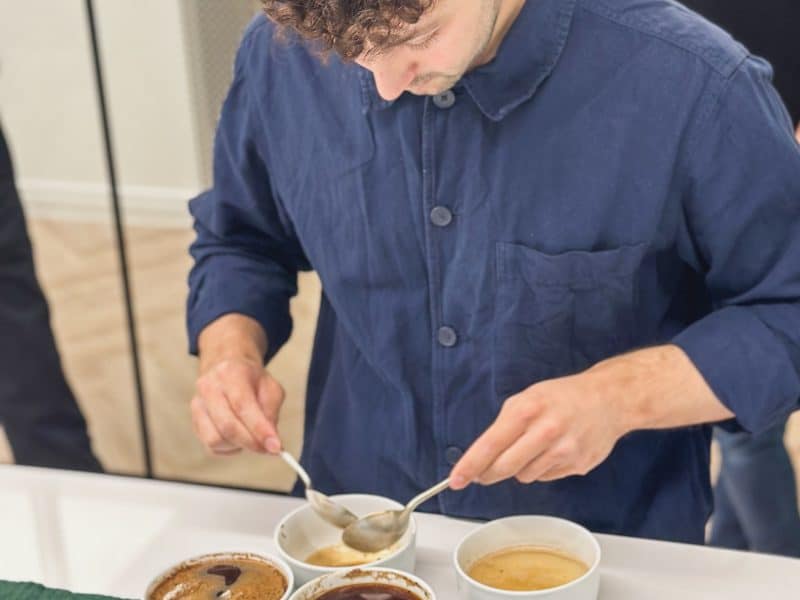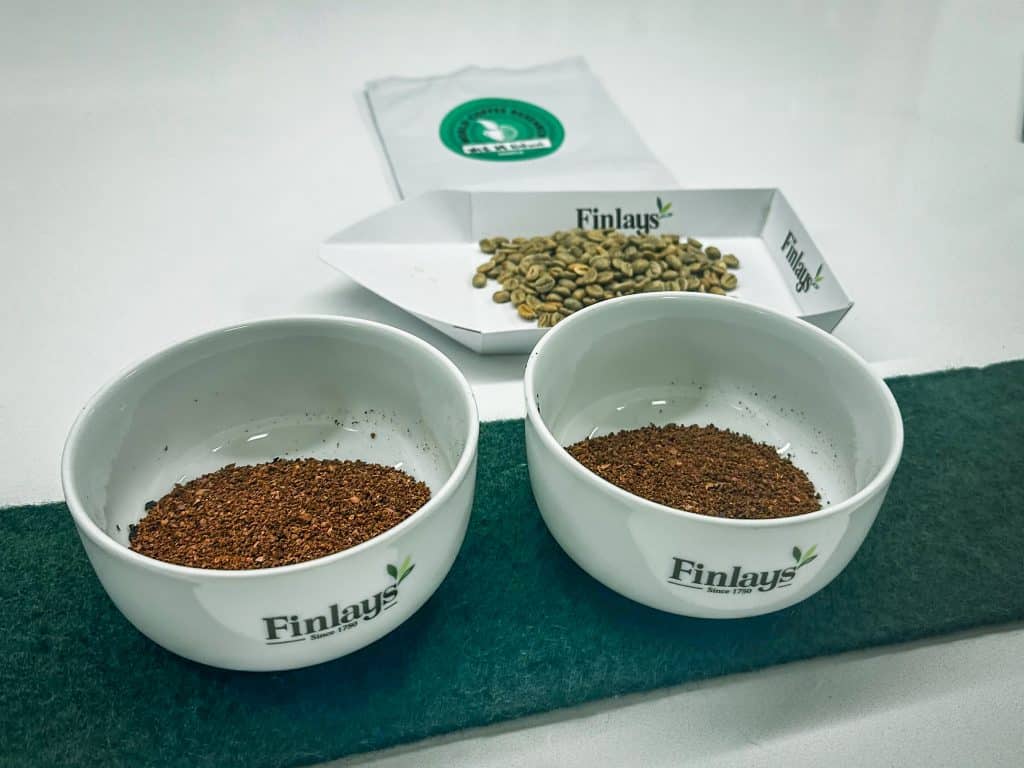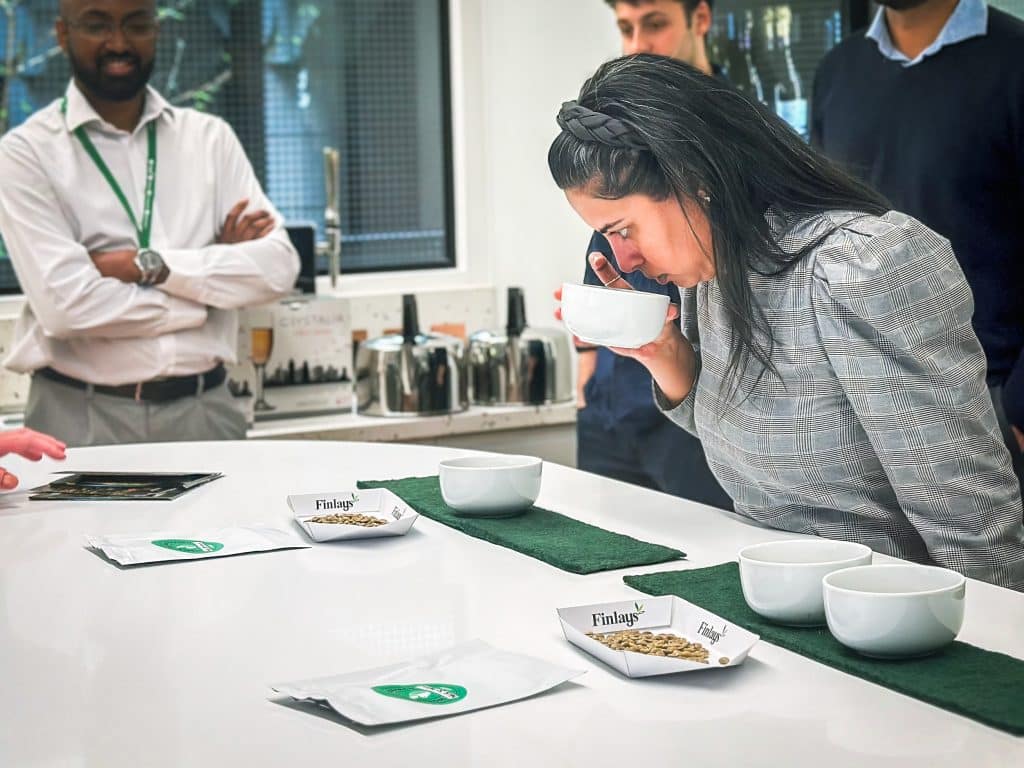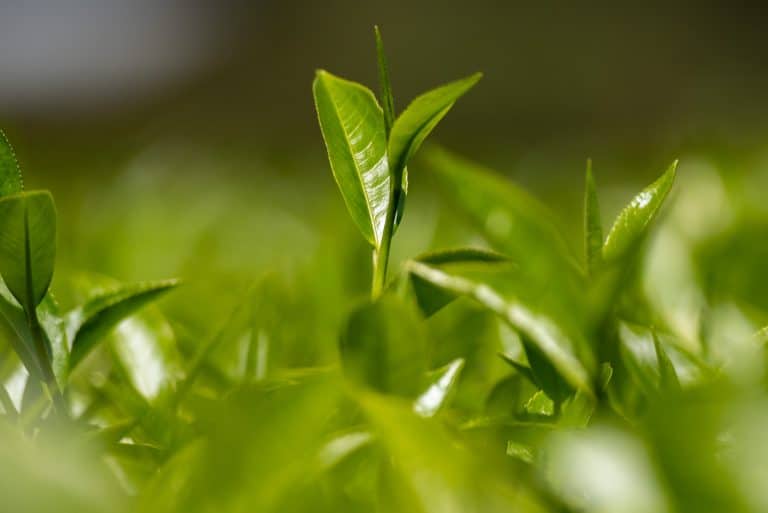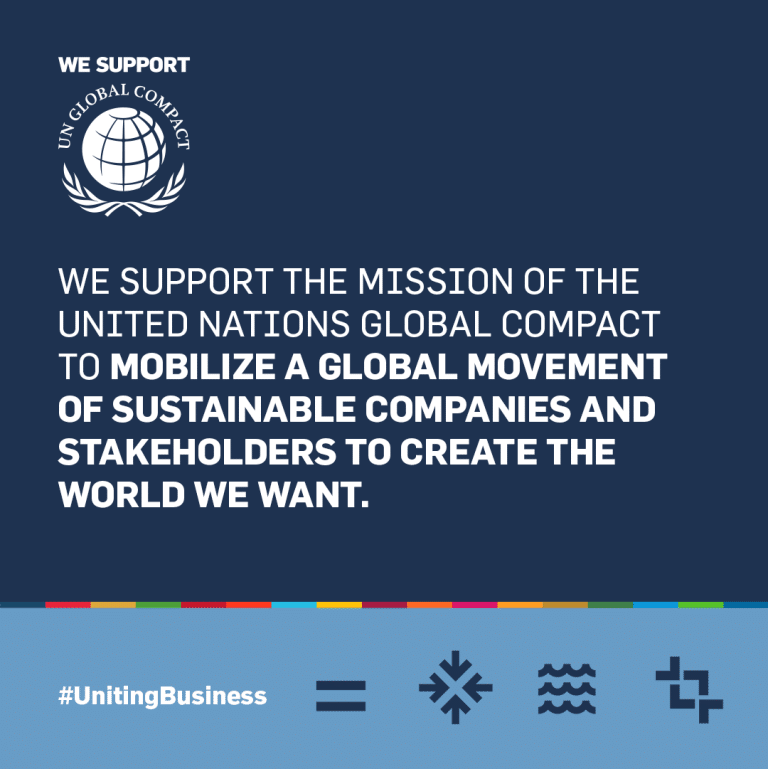By Tom Blackwall, Global Head of Coffee at Finlays
Earlier this year we were delighted to join World Coffee Research, an organisation which unites the global coffee industry to drive science-based agricultural solutions to urgently secure a diverse and sustainable supply of quality coffee today and for generations to come. In July, we were honoured to be given the very special opportunity to try some of the hybrid coffees that have come out of World Coffee Research’s F1 Hybrid Trials.
What are World Coffee Research’s F1 Hybrid Trials?
Back in 2015, World Coffee Research launched a trial of 43 F1 hybrid crosses between eight wild Arabica coffees and three rust-resistant Sarchimor varieties, as well as with Geisha lines. These were then planted in three locations across Costa Rica and El Salvador — Aquiares Estate, Hacienda Alsacia, and WCR’s Research Farm at Flor Amarilla—between 2016 and 2017, and some were then transferred to Rwanda in 2018.
What are F1 Hybrids?
An F1 hybrid is a variety that has been deliberately created by crossing two different parent varieties. By combining their genetic material, a variety can be created which inherits particular characteristics from the parent plants. This could be disease resistance, for instance, or exceptional taste, or high yield potential. An F1 hybrid contains a complete mix of the genetics of both parents.
This higher genetic potential means it is more likely to be adaptable across a wide range of environments. F1 hybrids differ from regular varieties in a number of ways. While conventional varieties have long breeding timelines, breeding times for F1 hybrids are much shorter at around 10-15 years. F1 hybrids could offer higher performance, for example 30% higher yields than conventional varieties.
But F1 hybrids are not a silver bullet – their traits are not fixed across generations, and they must be reproduced through vegetative propagation, which is costly and therefore inaccessible to many farmers. F1s often require more fertilizer and other resource inputs to produce successfully, creating a barrier to entry for lower-resourced farmers.
Why are breeding programs so important?
Scientific research such as this is imperative to the long-term future of the coffee industry. The coffee industry is facing a huge amount of challenges – from climate change to price volatility to the land available for coffee cultivation getting smaller. That’s why we need to create new varietals that are resistant to changes in climate, that yield more, that are better quality. This will mean farmers can create profitable businesses, supporting the long-term sustainability of our industry.
About the F1 hybrid coffees we tried
In 2022, World Coffee Research had collected enough data to evaluate the plants and narrow them down to four finalist candidates. These were all crosses between Geisha and Sarchimor. Geisha coffee is a variety of coffee tree that originated in the Gori Gesha forest, Ethiopia, though it is now grown in several other nations in Africa, Asia, and the Americas. It is widely known for its unique flavor profile of floral and sweet notes, its high selling price, and its exclusivity as its demand has increased over the years.
At Finlays we were able to try three coffees from this program. These were from the same F1 hybrid which had either been post-harvest processed differently or had been grown in a different breeding plot. The team of both sensory trained and non-sensory trained individuals thoroughly enjoyed the processes, noting the differences in the clean and complex washed sample and the slightly more fruity and fermented natural sample. There was an overwhelmingly positive impression from the tasting and the team at Finlays were excited to be some of the first people to be tasting these new cultivars.
What will happen next with the F1 trials?
As World Coffee Research’s F1 hybrid finalists move to pre-commercial trials, it is now focusing on other variety development efforts and forging a new path for improved varieties that will be more widely accessible to farmers with limited resources.
What is Finlays approach to ensuring sustainable supply of coffee?
Sustainable Supply is one of the three pillars of our Sustainable Future 2030 sustainability strategy. Our ambition is to achieve sustainable and ethical sourcing across tea, coffee, and extracts by 2030.
Key within this is tour Supplier Relationship Management (SRM) program which provides a consistent and systematic approach to supplier engagement and management. Our ultimate goal is to build on our strong relationships to understand the challenges and risks, and support suppliers to address these through continuous improvement initiatives.
We are absolutely delighted to be members of World Coffee Research and would like to say a huge thank you for giving us this exciting opportunity to taste the future of coffee!
Click here for more information on the F1 Hybrid Program
Click here for more information on Finlays approach to sustainable supply of tea and coffee
VIDEO: TOM BLACKWALL DISCUSSES THE F1 HYBRID PROGRAM

